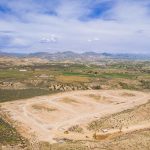Report: Oil and gas regulation agencies are lax in enforcement
State and federal agencies overseeing oil and gas development in five western states are failing to enforce regulations and are not inspecting wells on a timely basis.That was the conclusion of a report by the Western Organization of Resource Councils, an environmental group based in Billings, Mont.Colorado, New Mexico, Wyoming, Montana and North Dakota are experiencing a “gas rush” that is bringing prosperity, but has also wreaked havoc on public and private lands.State and federal agency inspection and enforcement staff levels have not kept pace with the rapid expansion of industry, the report said. Those states have 79 percent of the active wells and are managed by six Bureau of Land Management field offices, which employ only 26 percent of BLM inspectors.”We are in a situation where watchful and concerned residents are reporting accidents and violations because there are only two state inspectors for the 20 counties of Colorado’s Western Slope,” said Peggy Utesch, of Silt. Utesch and other members of WORC participated in a teleconference introducing the report on Wednesday.Oscar Simpson, a geologist and president of the New Mexico Wildlife Federation, said lack of enforcement means more profits for oil and gas companies.”New Mexico is the second leading oil and gas producing state in the U.S. … Historically, federal and state agencies and corresponding regulations were primarily established to regulate the development and production of oil and gas and to protect the financial interests of each operator.”Less staff, less spending (on environmental regulation enforcement), translates directly into profits. This is the way the game is played … Follow the money and you find why things are done or not done,” he said.In its recommendations, the WORC report said fines for violations need to be more than a slap on the wrist.”Fines and penalties for irresponsible drilling must be levied at high enough levels to impact industry behavior.”Further, the BLM and state agencies should shut down or refuse to issue drilling permits to oil and gas operators that consistently break the rules.Citizen complaints are often ignored by state and federal agencies, the report found. In North Dakota, agencies do not track citizen complaints. “North Dakota claims not to have received any complaints,” said Don Nelson, a farmer who lives in Keene, N.D. “Citizens become disillusioned with agencies when no action is taken.”Hans Stuart, a spokesman for the BLM in New Mexico, said the federal agency has a relationship with the oil and gas industry that allows it to handle problems before they’re serious enough to mean fines.Steve Henke, manager of the Farmington BLM office, said his office resolves issues at the lowest level – a noncompliance report – so they don’t escalate to penalties or suspending a lease.”Even though the report was critical … we are achieving compliance” without drastic measures, he said.He also said working with the industry before problems become significant can have a big impact. For example, if one operator has a problem at one site, the BLM can require it to fix that problem at all the company’s sites.The report said the BLM has made substantial improvements to inspections and enforcement, but that efforts have targeted production rather than environmental compliance.- The Associated Press contributed to this story.Contact Donna Gray: 945-8515, ext. 510dgray@postindependent.com

Support Local Journalism

Support Local Journalism
Readers around Glenwood Springs and Garfield County make the Post Independent’s work possible. Your financial contribution supports our efforts to deliver quality, locally relevant journalism.
Now more than ever, your support is critical to help us keep our community informed about the evolving coronavirus pandemic and the impact it is having locally. Every contribution, however large or small, will make a difference.
Each donation will be used exclusively for the development and creation of increased news coverage.



